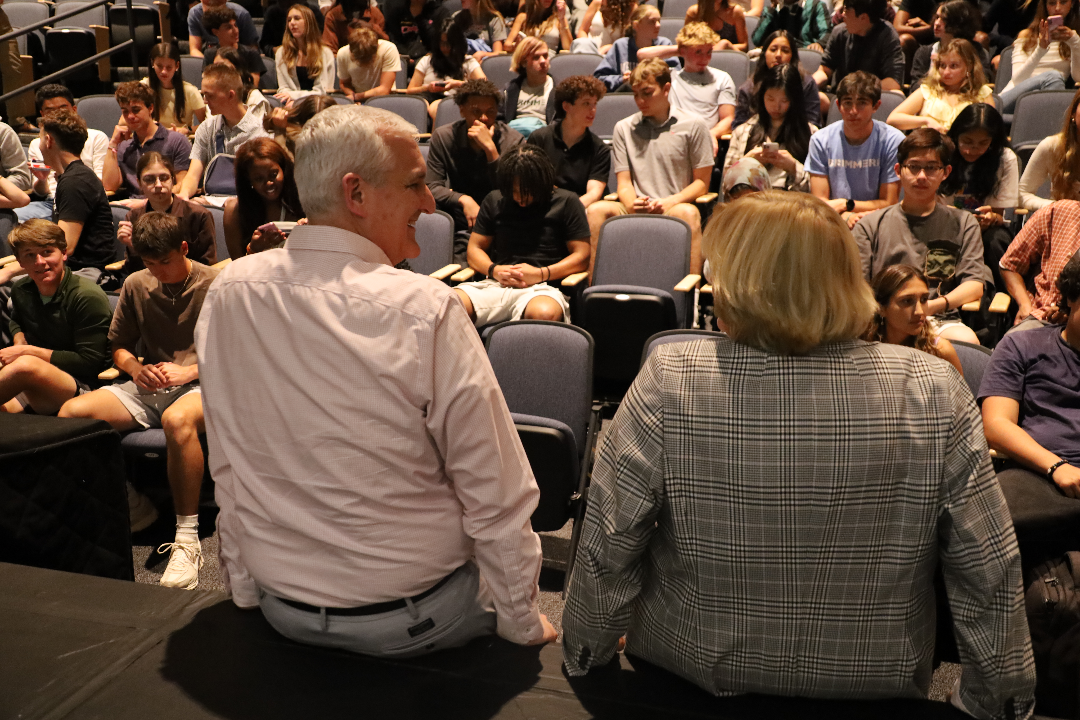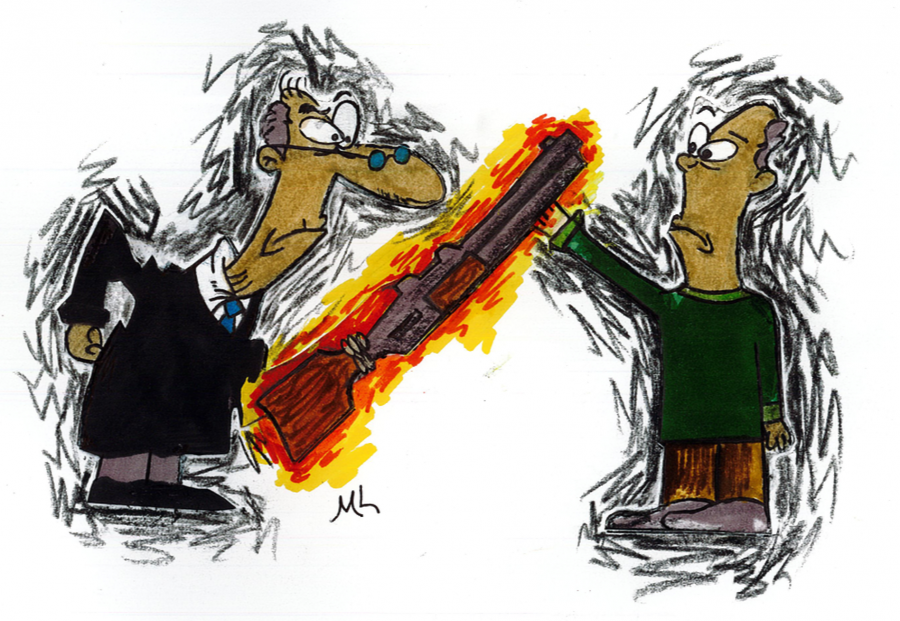Op-Ed: Don’t Take Our Guns
February 7, 2019
From freedom of speech to personal protection, the United States Constitution, including the Bill of Rights, ensures that citizens have fair and equal rights. However, in more recent history, these rights have been questioned, running the risk of lessening or losing them entirely.
On Tuesday, January 22, 2019, the Supreme Court publicized their decision to hear the case New York State Rifle & Pistol Association v. City of New York. In the lower courts, it was decided that the regulations placed on gun owners are reasonable and do not infringe upon the Second Amendment.
In the brief written by the challengers, they state, “Only New York City flatly prohibits its residents from removing their lawfully purchased and duly registered handguns from the city limits, even to transport them (unloaded, and locked up) to second homes at which they are constitutionally entitled to possess them, or to out-of-city shooting ranges or competitions at which they are constitutionally entitled to hone their safe and effective use.”
Given that our society is built on human rights and giving citizens the freedom to protect themselves and fight back, it is quite hypocritical that the laws in the state of New York have not been more closely examined.
Placing regulations to such an extreme violates the Second Amendment, and hopefully this case will be the forum needed to come to a more reasonable plan of action to deal with firearms.
Massachusetts has strict gun laws as well, but not to the extent New York City does. This case is of the utmost importance, as the final decision could set a precedent that will impact the nation as a whole.
The last case the Supreme Court heard that was similar to New York State Rifle & Pistol Association v. New York in nature was D.C. v. Heller in 2008, and the end result was the Firearms Control Regulations Act of 1975 being reversed.
The Firearms Control Regulations Act of 1975 stated that residents of Washington D.C. were banned from possessing various types of firearms and outlawed possession of unregistered firearms. Police officers and citizens who owned guns registered before the act passed on September 24, 1975 were exempt from this regulation.
D.C. v. Heller was an important ruling because the laws in D.C. are federal, and New York State Rifle & Pistol Association v. New York has the potential to be equally as influential due to the nature of the appeal.
The society we live in is very aware of gun violence and the government has put time and effort into trying to quell some of the violence.
Given that our society is built on human rights and giving citizens the freedom to protect themselves and fight back, it is quite hypocritical that the laws in the state of New York have not been more closely examined.
However, more often than not, “solutions” for eradicating gun violence involve eliminating or heavily regulating firearms– making it almost impossible to possess one without it being required due to one’s occupation.
States such as Massachusetts have more hoops to jump through before a citizen can have an FID or license to carry. This provides more opportunities for law enforcement to determine if the applicant is a possible safety concern, and has helped to lessen some of the danger.
Of all the Amendments, the Second Amendment is the one that tends to be the most controversial. Weapons should not be taken lightly, but that does not mean they should be taken away.
Adam Winkler, a professor at the University of California Los Angeles School of Law, said, “The issue in the case seems small, but the implications could be tremendous.”
Although the verdict of New York State Rifle & Pistol Association v. New York is only necessary to determine if the gun regulations in New York City go against the Second Amendment, the case has the potential to have a much broader effect.
After President Trump’s appointment of Justice Neil Gorsuch and more recently Justice Brett Kavanaugh, the court’s conservative majority could use this case to open opportunities for other regulations surrounding firearms to be questioned.
Justice Clarence Thomas has consistently voiced his opinion that the Supreme Court does not discuss the Second Amendment nearly as much as it should. “As evidenced by our continued inaction in this area, the Second Amendment is a disfavored right in this court,” he wrote.
The lack of discussion about firearms in the Supreme Court is concerning, and this case is a wonderful opportunity to change that.
It is highly likely, if not guaranteed, that there will be ideological disagreements throughout the case, but having controversial discussions are necessary to ensure the Constitution is being upheld.
What began as a few citizens upset by their city’s gun laws has grown into something much bigger, and hopefully as New York State Rifle & Pistol Association v. New York is more thoroughly examined, firearms regulations nationwide will be discussed further in order to ensure citizens do not lose the rights they are entitled to.
























































